- FIBER OPTIC TRANSCEIVERS >800G & 400G Transceivers >400G OSFP SR4 FLT 50m Transceiver
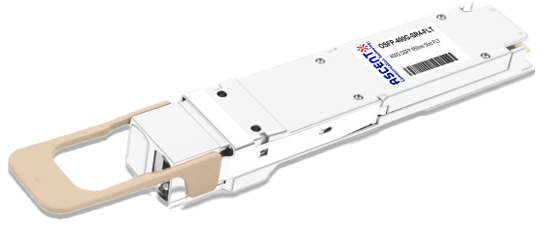
400G OSFP SR4 FLT 50m Transceiver
Ascentãs OSFP-400G-SR4A05 is a 400Gb/s Octal Small Form-factor Pluggable (OSFP) optical module without a top open fin designed for 50m with OM4 fiber optical communication applications. The module converts 4 channels of 100Gb/s (PAM4) electrical input data to 4 channels of parallel optical signals, each capable of 100Gb/s operation for an aggregate data rate of 400Gb/s. Reversely, on the receiver side, the module converts 4 channels of parallel optical signals of 100Gb/s each channel for an aggregate data rate of 400Gb/s into 4 channels of 100Gb/s (PAM4) electrical output data. MPO-12 connector can be plugged into the OSFP112 SR4 module jack with 4 channels. Proper alignment is ensured by the guide pins inside the receptacle. The cable usually cannot be twisted for proper channel-to-channel alignment. The electrical connection is achieved through an OSFP MSA-compliant edge-type connector. The I2C interface is supported to read and control the status of this product.
ôñ OSFP form factor hot pluggable
ôñ CMIS compliance
ôñ 4 parallel lanes of 100G-PAM4 electrical and optical parallel lanes
ôñ Optical port of MPO-12/APC
ôñ Up to 50m reach on multi-mode fiber OM4 and 30m on OM3 with FEC
ôñ 9 Watts max
ôñ Case temperature range of 0ô¯C to 70ô¯C
ôñ Adaptive Tx input equalization
ôñ Programmable Rx output amplitude, Rx output pre-cursor, Rx output post-cursor
ôñ Supply voltage monitoring (DDM_Voltage)
ôñ Transceiver case temperature monitoring (DDM_Temperature)
ôñ Tx transmit optical power monitoring for each lane (DDM_TxPower)
ôñ Tx bias current monitoring for each lane (DDM_TxBias)
ôñ Rx receive optical power monitoring for each lane (DDM_RxPower)
ôñ Warning and alarm indication for each DDM function
ôñ Tx & Rx LOL and LOS indication
ôñ Tx fault indication
ôñ Host and line side loopback capabilities
ôñ Host and line side PRBS generator and checker capabilities
ôñ CDB firmware upgrade capability
ôñ Versatile diagnostics monitoring (VDM) capability (optional, additional power consumption increase)
ôñ Other functions defined in CMIS
Absolute Maximum Ratings
It has to be noted that the operation in excess of any individual absolute maximum ratings might cause permanent damage to this module.
Parameter | Symbol | Min. | Max. | Unit | Note |
Storage Temperature | TS | -40 | 85 | ô¯C | |
Operating Case Temperature | TOP | 0 | 70 | ô¯C | |
Power Supply Voltage | VCC | -0.5 | 3.6 | V | |
Relative Humidity (non-condensation) | RH | 0 | 85 | % |
Recommended Operating Conditions
Parameter | Symbol | Min. | Typ. | Max. | Unit | Note |
Operating Case Temperature | TOP | 0 | 70 | ô¯C | ||
Power Supply Voltage | VCC | 3.135 | 3.3 | 3.465 | V | |
Data Rate, each Lane | 53.125 | GBd | PAM4 | |||
Data Rate Accuracy | -100 | 100 | ppm | |||
Pre-FEC Bit Error Ratio | 2.4x10-4 | |||||
Post-FEC Bit Error Ratio | 1x10-12 | 1 | ||||
Link Distance | D | 2 | 50 | m | 2 |
Notes:
1. FEC provided by host system.
2. FEC required on host system to support maximum transmission distance.
Electrical Characteristics
The following electrical characteristics are defined over the Recommended Operating Environment unless otherwise specified.
Parameter | Symbol | Min. | Typ. | Max. | Unit | Note |
Power Consumption | 9.0 | W | ||||
Supply Current | Icc | 2.87 | A | |||
Transmitter (each Lane) | ||||||
Signaling Rate, each Lane | TP1 | 53.125 ôÝ 100 ppm | GBd | |||
Differential pk-pk Input Voltage Tolerance | TP1a | 750 | mV | |||
Peak-to-Peak AC Common-mode Voltage Tolerance Low-frequency, VCMLF Full-Band, VCMFB | TP1a | 32 | mV | |||
80 | ||||||
Differential-Mode to Common-Mode Return Loss, RLcd | TP1 | IEEE 802.3ck Equation (120Gã 2) | dB | |||
Effective Return Loss, ERL | TP1 | 8.5 | dB | |||
Differential Termination Mismatch | TP1a | 10 | % | |||
| Module Stressed Input Tolerance | TP1a | IEEE802.3ck 120G.3.4.3 | V | |||
Single-Ended Voltage
| TP1 | -0.4 to 3.3 | mV | |||
DC Common-Mode Voltage Tolerance
| TP1 | 2.85 | V | |||
-0.35 | ||||||
Receiver (each Lane) | ||||||
Signaling Rate, each Lane | TP4 | 53.125 ôÝ 100 ppm | GBd | |||
Peak-to-Peak AC Common- Mode Voltage
| TP4 | 32 | mV | |||
80 | ||||||
Differential Peak-to-Peak Output Voltage
| TP4 | 600 | mV | |||
845 | ||||||
Eye Height | TP4 | 15 | mV | |||
Vertical Eye Closure, VEC | TP4 | 12 | dB | |||
Common-Mode to Differential-Mode Return Loss, RLdc | TP4 | IEEE802.3ck Equation (120Gã 1) | dB | |||
Effective Return Loss, ERL | TP4 | 8.5 | dB | |||
Differential Termination Mismatch | TP4 | 10 | % | |||
Transition Time | TP4 | 8.5 | ps | |||
DC Common-Mode Voltage Tolerance
| TP4 | 2.85 | mV | |||
-0.35 | ||||||
Parameter | Symbol | Min. | Typ. | Max. | Unit | Note |
Transmitter | ||||||
Data Rate, each Lane | 53.125 ôÝ 100 ppm | GBd | ||||
Modulation Format | PAM4 | |||||
Wavelength | ö£ | 842 | 948 | nm | ||
RMS Spectral Width
| 0.65 | nm | 1 | |||
PAVG | -4.6 | 4 | dBm | |||
Outer Optical Modulation Amplitude (OMAouter), each Lane | POMA | -2.6(For max (TECQ, TDECQ) ãÊ 1.8 dB) -4.4 +max(TECQ, TDECQ) ( For 1.8 ÿ¥max (TECQ, TDECQ) ãÊ 4.4 dB) | 3.5 | dBm | ||
| Transmitter and Dispersion Eye Closure for PAM4 (TDECQ), each Lane | TDECQ | 4.4 | dB | |||
Transmitter Eye Closure for PAM4, each Lane | TECQ
| 4.4 | dB | |||
Overshoot/Undershoot | 29 | % | ||||
Transmitter Power Excursion, each Lane | 2.5 | 2.3 | dBm | |||
Extinction Ratio | ER | 2.5 | dB | |||
Transition Time | Tt | 17 | ps | |||
Average Launch Power of OFF Transmitter, each Lane | Poff | -30 | dBm | |||
RIN14 OMA | RIN | -132 | dB/Hz | |||
Optical Return Loss Tolerance | TOL | 14 | dB | |||
Encircled Flux | ãË 86% at 19 ö¥m ãÊ 30% at 4.5 ö¥m | 2 | ||||
Receiver | ||||||
Data Rate, each Lane | 53.125 ôÝ 100 ppm | GBd | ||||
Modulation Format | PAM4 | |||||
Center Wavelength | ö£ | 842 | 948 | Nm | ||
Damage Threshold, each Lane | THd | 5 | dBm | 3 | ||
Average Receive Power, each Lane | -6.3 | 4 | dBm | 4 | ||
Receive Power (OMAouter), each Lane | 3.5 | dBm | ||||
Receiver Reflectance | RR | -15 | dB | |||
Receiver Sensitivity OMAouter), each Lane | SEN | -4.4(For TECQ ãÊ 1.8 dB ) ã 6.2 + TECQ ( For 1.8ÿ¥TECQ ãÊ 4.4 dB) | dBm | 5 | ||
| Stressed Receiver Sensitivity (OMAouter), each Lane | SRS | -1.8 | dBm | 6 | ||
dBm | ||||||
LOS Assert | LOSA | -15 | dBm | |||
LOS De-assert | LOSD | -9.2 | dBm | |||
LOS Hysteresis | LOSH | 0.5 | dB | |||
Conditions of Stress Receiver Sensitivity Test (Note 7) | ||||||
Stressed Eye Closure for PAM4 (SECQ), Lane under Test | 4.4 | dB | ||||
OMAouter of each Aggressor Lane | 3.5 | dBm | ||||
Notes:
1. RMS spectral width is the standard deviation of the spectrum.
2. If measured into type A1a.2 or type A1a.3, or A1a.4, 50 ö¥m fiber, by IEC 61280- 1-4.
3. The receiver shall be able to tolerate, without damage, continuous exposure to a modulated optical input signal having this power level on one lane. The receiver does not have to operate correctly at this input power.
4. Average receive power, each lane (min) is informative and not the principal indicator of signal strength. A received power below this value cannot be compliant; however, a value above this does not ensure compliance.
5. Receiver sensitivity (OMAouter ) is informative and is defined for a transmitter with a value of TECQ up to 4.4 dB. Receiver sensitivity should meet Equation (1), which is illustrated in below figure.
RS = max (ã4.4, TECQ ã 6.2) dBm (1)
Where:
RS is the receiver sensitivity, and
TECQ is the TECQ of the transmitter used to measure the receiver sensitivity.
6. Measured with conformance test signal at TP3 for the BER equal to 2.4x10-4.
7. These test conditions are for measuring stressed receiver sensitivity. They are not characteristics of the receiver.
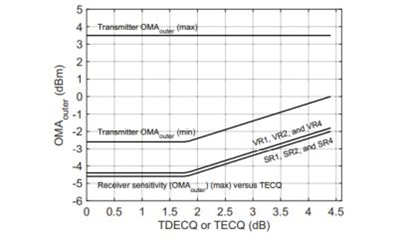
Digital Diagnostic Functions
Parameter | Symbol | Min. | Max. | Unit | Note |
Temperature Monitor Absolute Error | DMI_Temp | -3 | 3 | ô¯C | Over operating temperature range |
Supply Voltage Monitor Absolute Error | DMI _VCC | -0.1 | 0.1 | V | Over full operating range |
Channel RX Power Monitor Absolute Error | DMI_RX_Ch | -2 | 2 | dB | 1 |
Channel Bias Current Monitor | DMI_Ibias_Ch | -10% | 10% | mA | |
Channel TX Power Monitor Absolute Error | DMI_TX_Ch | -2 | 2 | dB | 1 |
Notes:
1. Due to measurement accuracy of different single mode fibers, there could be an additional +/-1 dB fluctuation, or a +/- 3 dB total accuracy.
ESD
This transceiver is specified as ESD threshold 1kV for high speed data pins and 2kV for all other electrical input pins, tested per MIL-STD-883, Method 3015.4 /JESD22-A114-A (HBM).
However, normal ESD precautions are still required during the handling of this module. This transceiver is shipped in ESD protective packaging.
It should be removed from the packaging and handled only in an ESD protected environment.
Laser Safety
This is a Class I Laser Product, or Class 1 Laser Product according to IEC/EN 60825-1:2014.
This product complies with 21 CFR 1040.10 and 1040.11 except for conformance with IEC 60825-1 Ed. 3., as described in Laser Notice No. 56, dated May 8, 2019.
Caution: Use of controls or adjustments or performance of procedures other than those specified herein may result in hazardous radiation exposure.
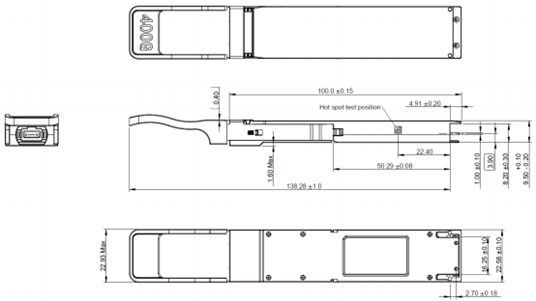
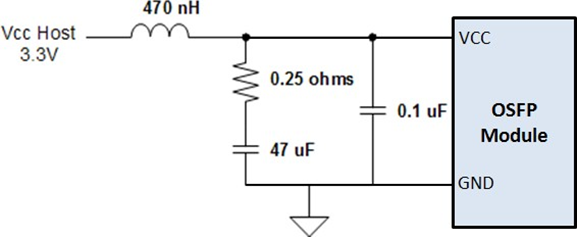
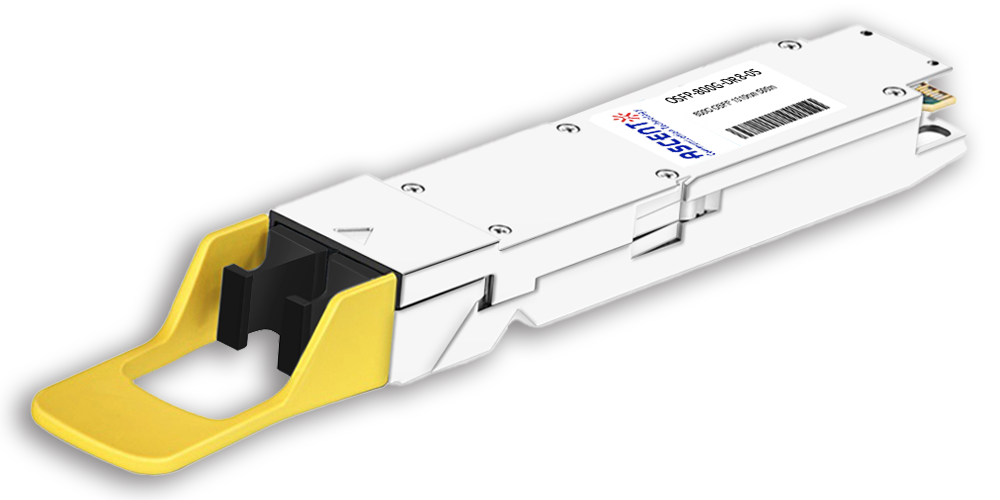
800G OSFP DR8 1310 nm 500 m
800 Gb/s DR8 OSFP 500m Optical Transceiver
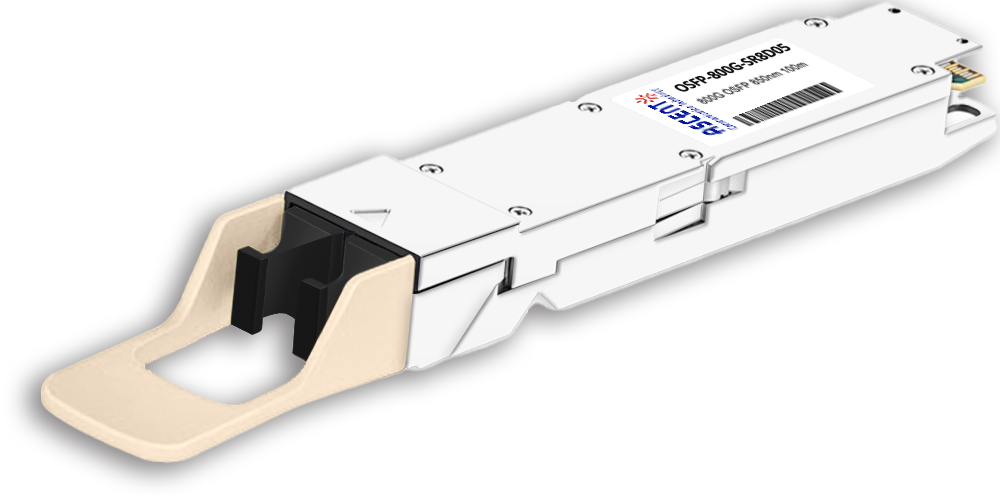
800G OSFP SR8 850 nm 100 m
OSFP-800G-SR8D-01 800 Gb/s OSFP SR8 850 nm 100 m Transceiver
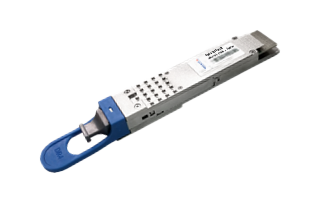
400G QSFP56-DD 10km
400G QSFP-DD 4X100G LR1 Optical Transceiver
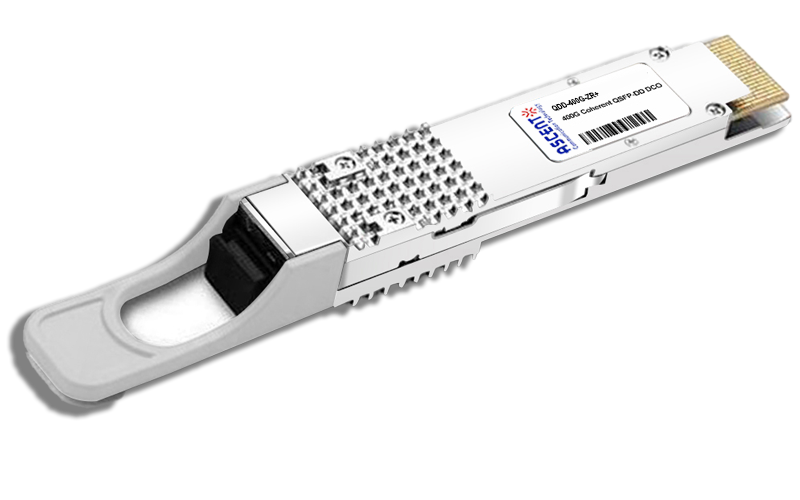
400G QSFP-DD ZR+
QSFP-DD-ZR-80 400 Gb/s QSFP-DD 80 km Transceiver
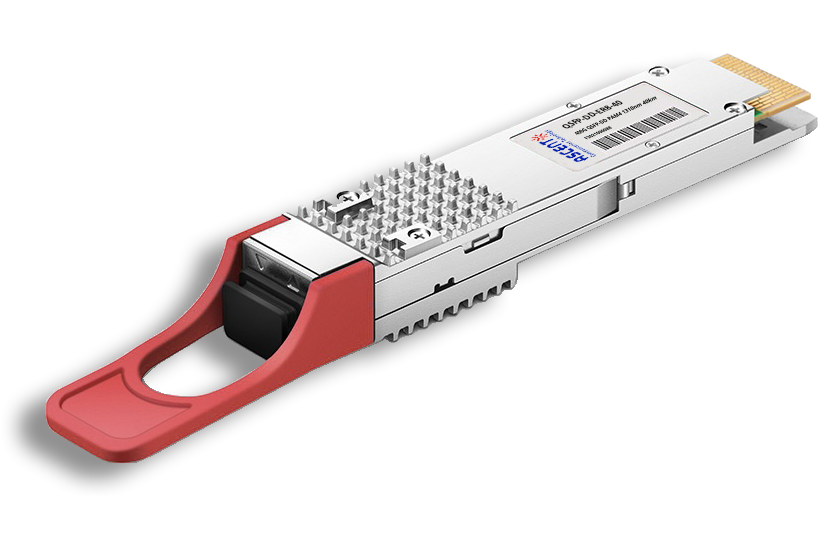
400G QSFP-DD ER8 40 km
QSFP-DD-ER8-40 400 Gb/s QSFP-DD 40 km Transceiver
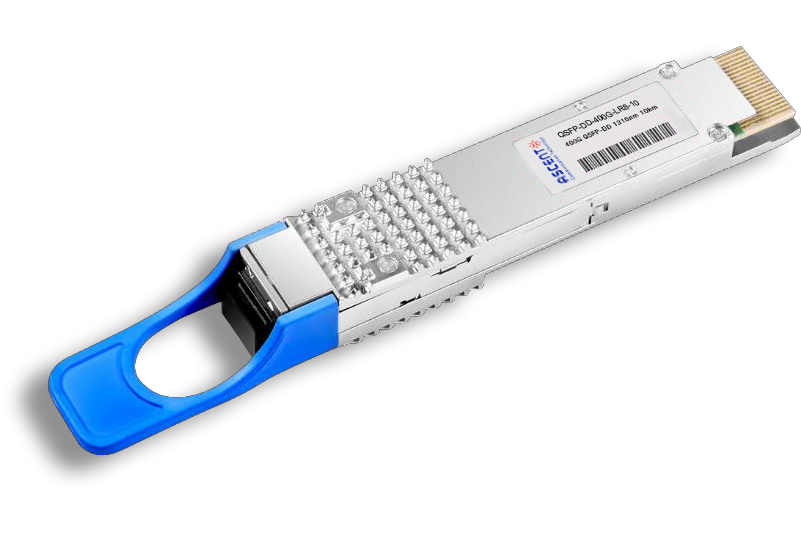
400G QSFP-DD LR8 1310 nm 10 km
QSFP-DD-LR8-10 400 Gb/s QSFP-DD LR8 10 km Transceiver

400G QSFP-DD LR4 CWDM 10 km
QSFP-DD-LR4-10 400 Gb/s QSFP-DD LR4 CWDM 10 km Transceiver
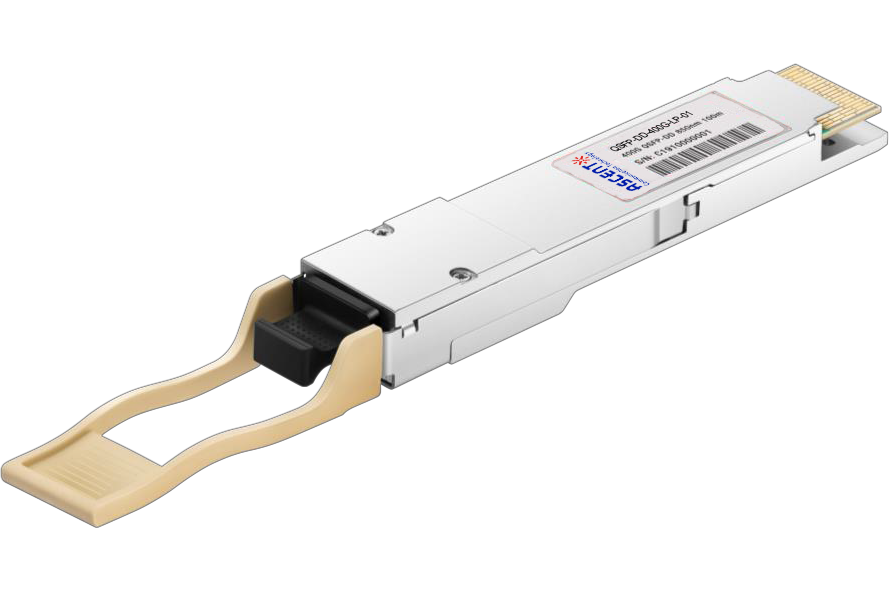
400G QSFP-DD SR8 850 nm 100 m
QSFP-DD-LP-01 400 Gb/s QSFP-DD SR8 100 m Transceiver
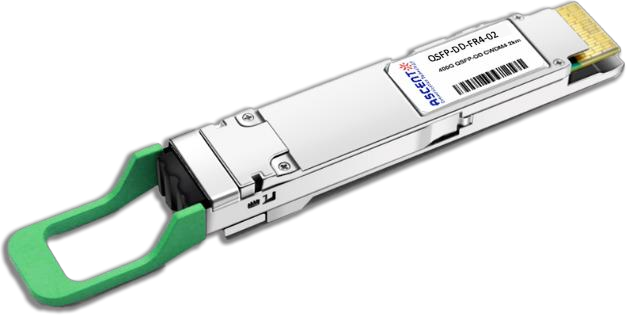
400G QSFP-DD FR4 2km
400 Gb/s QSFP-DD FR4 2 km DDM Transceiver
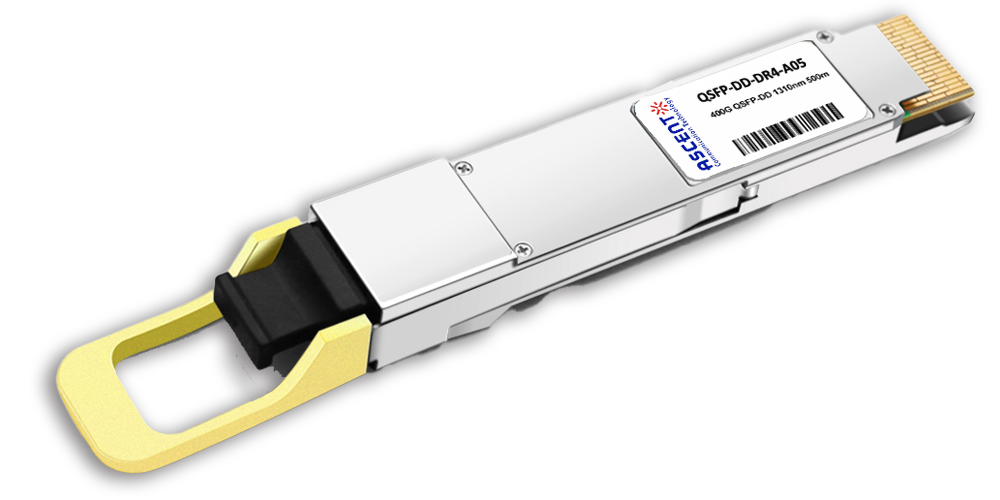
400G QSFP-DD DR4 500m
400 Gb/s QSFP-DD DR4 500m Transceiver
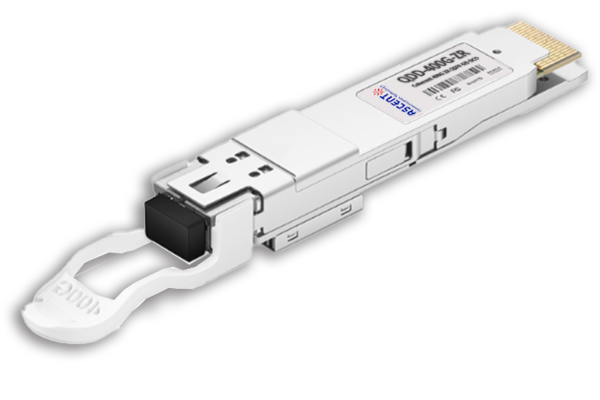
400G QSFP-DD DCO ZR
400G QSFP-DD DCO ZR Coherent Optical Transceiver
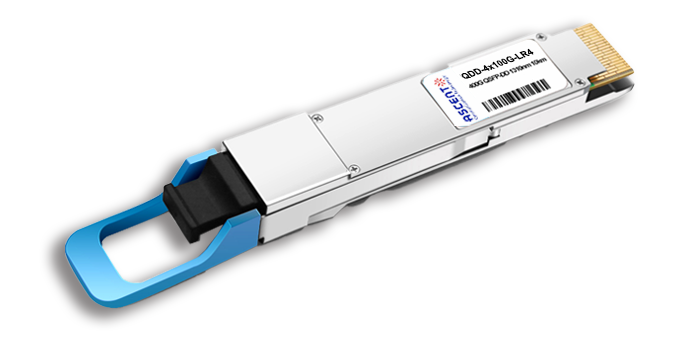
4X100G QSFP-DD LR4 10km
QDD 4x100G 1310nm LR 10 km Transceiver
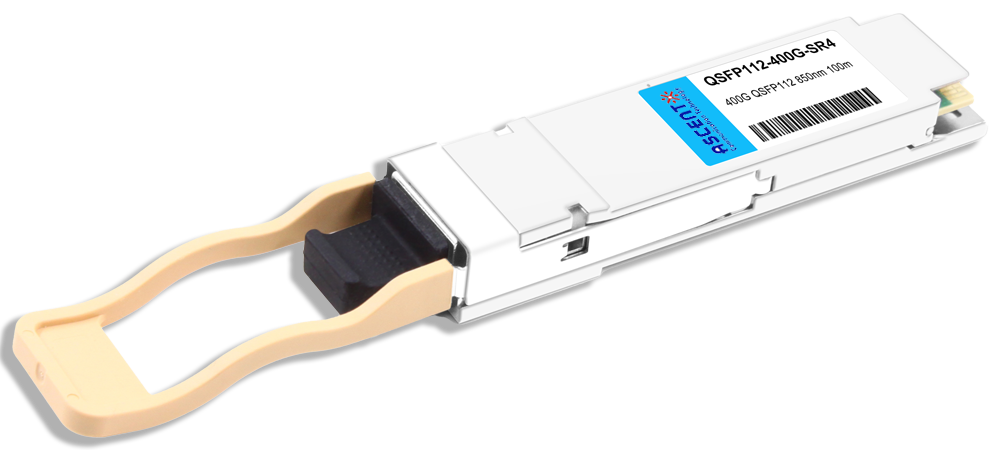
400G QSFP112 SR4 850 nm 100 m
QSFP112-400G-SR4-01 400 Gb/s QSFP112 SR4 850 nm 100 m Transceiver

400G QSFP112 DR4 1310 nm 500 m
400G QSFP112 DR4 1310 nm Transceiver 500m
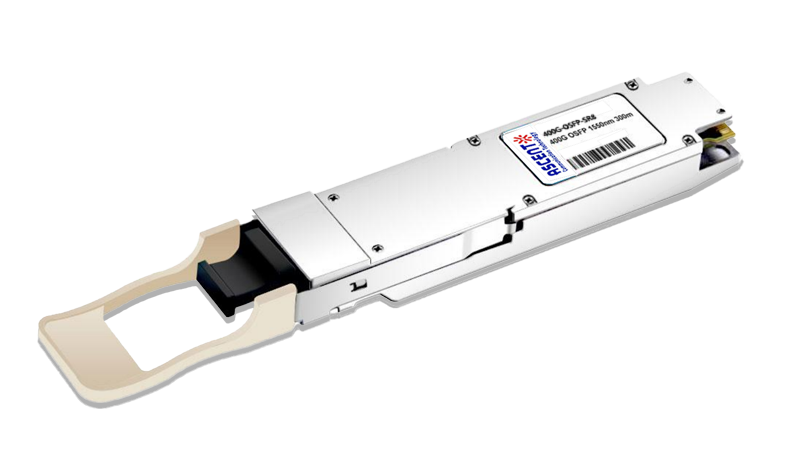
400G OSFP SR8 100m Transceiver
400 Gbps PSM8 Multi-Mode 100m OSFP Transceiver
White Paper
Press Releases
Briefings 1
Briefings 2
Videos, etc.
QRG
Manual1
Manual2
Get in touch with our experts
Feedback